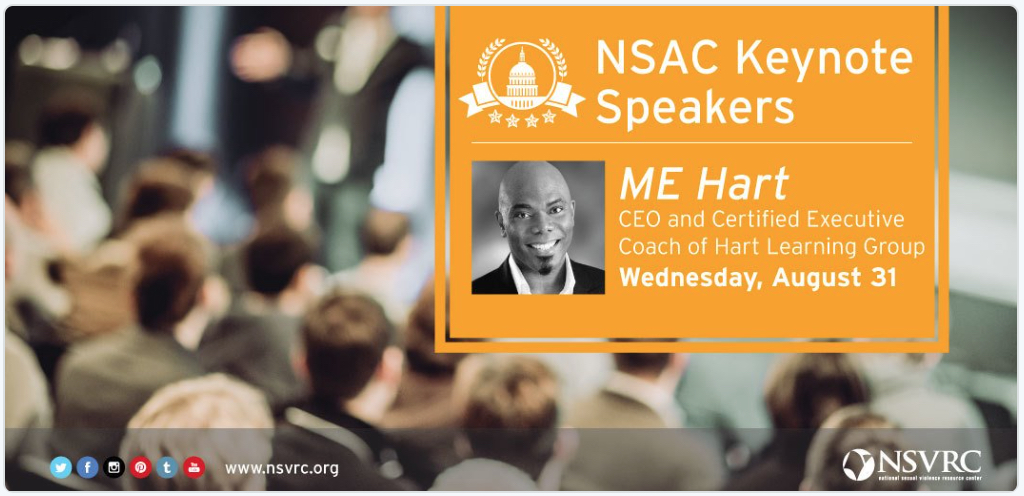Promotional photo from the National Sexual Assault Conference August 31, 2016

A friend asked me the other day, Do you think this #MeToo movement is a pivot point?
Do you think it will make any difference?
I am a #MeToo. I experienced unwanted sexual behavior in childhood, and sexual harassment early in my career. And professionally, I have been working with clients to prevent sexual harassment in the workplace for over 20 years.
My friend’s question had me thinking about the keynote I gave at the National Sexual Assault Conference in August of 2016. It was a very specialized audience: therapists, advocates, government service agencies, and other social service professionals and volunteers.
But today’s conversations are playing out across a much larger stage. Daily revelations of harassment and assault, and the wave of me too acknowledgements have gotten a lot of people talking, debating, and sharing their own experiences from being whistled at and verbally harassed, to being sexually assaulted. It’s a messy and complex mix of conversations. And it’s necessary!
So is this a pivot point? I think it is. But whether we are just pivoting to spin back around to the same place; or whether we will end up in a better place is an open question. We could easily slip back to a time of fear and silence. I remember it well.
Twenty years ago Black Entertainment Television could not find a single African American Male to agree to appear on a show about childhood sexual abuse. They tried hard to convince me, saying that they had a therapist lined up, a show date, and would have to cancel the show if no one would agree to appear. I hesitated. This would be big news in my small home town. I made a difficult call to my mother, who didn’t know I had been abused as a child. She was shocked, but said she would support my decision. So I agreed to do the show. Two other men joined after I agreed. We knew it was important that our voices be heard, but we knew we would face personal and professional repercussions.
Even now, in the midst of our public conversation, family and friends still get uncomfortable when you talk about these issues on a personal level. You may feel isolated for awhile at work and at home. Some career opportunities may be affected by speaking up. Your sense of who you are, and how you fit in the world, may be shaken as you figure out how to deal with these new responses.
I am compassionately concerned for people who, inspired by others, are going public with painful defining moments for the first time especially, if they have not yet had the chance to process their experiences with a good therapist or support group.
However, I am optimistic, because I have seen change happening firsthand. Sometimes change happens slowly, like a quiet conversation between friends. And sometimes change happens dramatically, like in 2010, when I joined 200 men from the US and Canada on The Oprah Winfrey Show. We stood together to help break the silence on the fact that child sexual abuse happens to boys, too.
Today, with so many courageous women and men coming forward with their experiences – I believe that this can be a pivot point that takes us to a much better place. For that to happen we must keep hope alive by telling thriving stories as much as we tell stories of struggle. As I said in my keynote last year, to that audience of helpers and healers: “The hope lives in the fact that, ‘Yes this happened to you but you can live through this!’ Not only can you live through this, not only can you survive this; you can find love in your life, you can find work that you enjoy, you can have a vibrant and full life. You can get your life back on course; you can have the opportunity to discover who you were born to be.”
It might not feel like that now. But, that is my wish for you, and all who journey from surviving to thriving.
To hear an edited version of my Keynote address to the NSAC, click the link below.
